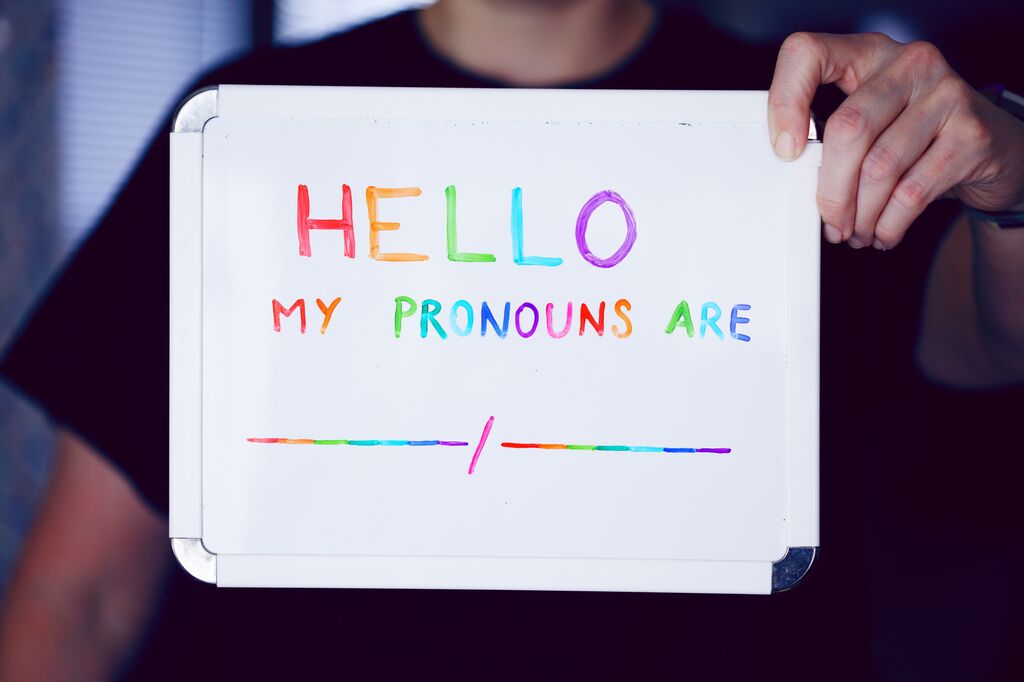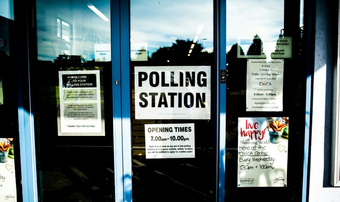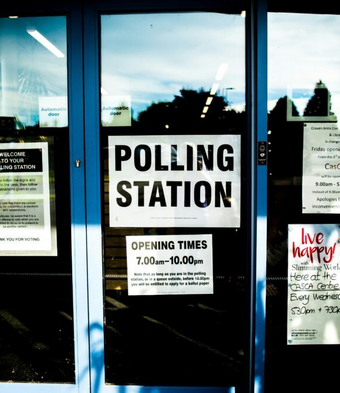Do you know what schools are teaching your children about gender?

If you are a parent, imagine the following scenario. Let’s say your son has given some evidence of being distressed about their gender. He tells you he thinks he's a girl. You gently and lovingly counsel patience and tell him it’s just a phase. Months later, you go into his school for parents evening. You discover teachers are calling your son by his chosen pronoun and by his chosen girl’s name. You are understandably horrified. Even more so because at no point did anyone from the school reach out to talk with you about it.
Such a scenario might strike you as wholly wrong, misguided and dangerous. And you’d be right.
But shockingly, according to a major new report by the think tank The Policy Exchange, a significant number of secondary schools across England are accepting a pupil’s chosen gender and not bothering to involve or inform the parents.
It’s worth quoting from some of the key findings in Asleep at the Wheel.
The report starts by acknowledging the hugely important role schools play in teaching our young people. They take on an ‘immense responsibility’ that ‘goes well beyond the planning, preparation and delivery of lessons and focus on a child’s academic development’.
A key part of how schools discharge these duties is through safeguarding. This refers to ‘a range of measures that must be met to ensure children are healthy, safe, and able to flourish’. Such principles are ‘well-established, enshrined in law and universally understood to be instrumental to the functioning of a responsible society.’
However, the report identifies that there’s a ‘safeguarding blind spot when it comes to the issue of sex and gender’. This manifests itself in key safeguarding principles being ‘routinely disregarded in many secondary schools’, who are ‘neglecting their safeguarding responsibilities and principles in favour of a set of contested beliefs, in ways that risk jeopardising child wellbeing and safety’.
The end result is that schools are ‘compromising both the law and statutory safeguarding guidance. Many schools are disregarding published guidance in the teaching of Relationships, Sex and Health Education teaching curriculum.’
These failures are impacting both gender distressed children and also their peers. The report uncovered ‘numerous cases of schools acting in complete disregard of standard safeguarding procedures, including by not informing parents – without good reason – in major life decisions by their child, promising confidentiality to a child about certain matters, or allowing children to make significant, potentially irreversible medical decisions without involving either parents or relevant professionals’.
Some external agencies, with clear ideological agendas, have been involved in encouraging schools to adopt these contentious methods to respond to a growing number of children presenting as ‘gender distressed’. Moreover, these outside groups have helped ensure gender identity beliefs have been embedded within the RSHE curriculum. The report says ‘schools are teaching belief about gender identity as though they are facts, often presenting the immutable and biological reality of sex as less important than a person’s ineffable feelings about themselves’.
Here's some of the headline figures:
- Only 28% of schools are reliably informing parents as soon as a child discloses feelings of gender distress.
- Four in ten secondary schools operate policies of gender self-identification.
- 69% of secondary schools are requiring other children to affirm a gender-distressed child’s new identity.
- With regard to the teaching of RSHE: 72% of schools are teaching that people have a gender identity that is different from their biological sex.
It’s worth just pausing at this point. One of the main objections that’s put forward when you try and raise alarm about gender ideology in schools is a ‘lack of evidence’. It seems to me that this report provides concrete evidence that those raising concerns were right all along.
Through Freedom of Information Requests, clear evidence has been gathered which highlights how effective certain groups have been at influencing how schools teach young minds on sex and gender.
Its publication is hugely timely when you consider the wider political scene. As the report notes, in recent years, the clinical provision for gender distressed children has come under far greater scrutiny. Dr Hilary Cass’ report found serious failings with the Gender Identity Development Service (GIDS). Moreover, the UK government recently announced the Department of Education would be bringing forward a statutory review of the content of relationship and sex and relationships education in primary and secondary schools. That came after political pressure from former cabinet ministers and Tory MPs, led by Miriam Cates, who presented a dossier of evidence to No 10 and the Prime Minister to help initiate some action.
This report also comes as the Scottish Government’s highly contested Gender Recognition Reform (Scotland) Bill has been blocked by the UK government over its potential negative impact on the Equality Act. Taken together, the combination of these realities has prompted some commentators to claim that the argument over gender identity is swinging behind ‘common sense’. Let’s pray it’s so.
From a Christian perspective, there are clear, biblical principles that can guide and shape our response.
Firstly, we can affirm the importance of safeguarding. When done properly, it is a sincere endeavor, aimed at protecting our young people. This is consistent with the teaching of God’s word that we should have a particular care and concern for the most vulnerable in our society. When safeguarding is ignored, as this report suggests it has been at many secondary schools across the country, we should all be concerned. Perhaps some of us might be tempted to dismiss safeguarding as ‘statist’ and another example of how we smother children with too much ‘health and safety’. I hope not. Safeguarding is a vital part of looking after our children.
Secondly, we can and should affirm the bible’s clear teaching that there are two biological sexes. We see this in Genesis 1:27 where we’re told that God made them male and female. The theologian Herman Bavinck teaches that the image of God is truly seen in both sexes. There’s a sense that the image of God is incomplete before Eve is created and joins Adam.
In the Christian worldview, our biological sex matters because God gives it to us. Our bodies matter because they too are gifts from God. He is the One revealed in Psalm 139 to be intimately and closely involved in our creation. Therefore, to use medical technology to alter someone’s birth body by changing their genitalia is to play God: something we are strongly warned we must not do.
At the same time, part of our Christian response must be realism, too. We know that we live in a fallen world. Genesis 3 tells us the story of what happened and what has gone wrong. As a result of Adam and Eve’s sin, the whole cosmos is under the curse of God. The fall has effected everything, including our minds, and accordingly many of us experience some mental confusion as we try to discern our identity. One expression of this is that a small minority of people experience a disconnect between their birth sex and what they think and feel in their heads.
But the answer here is not to affirm such thoughts (as we would not just automatically affirm other confusion around identity). Instead we should gently and calmly say to children that they cannot change their biological sex. Even if they have an operation to do so physically, you cannot reduce someone’s biological sex simply down to their body parts. What makes someone male is more than anatomy. It includes their unique DNA (which can never be changed), their hormone levels, the way their brain is wired and so much more.
Asleep at the Wheel is a huge wake up call. Christians may respond in different ways. If your children are in state schools, it’s vital you engage with the school on the contents of what’s being taught. You can also still request a right to withdraw from some elements of RSHE. Our comprehensive guide will help you understand your rights.
Others may see this and see the need to home educate. If that’s you, there are helpful resources available for you as well. Still others might see the need for more Christian education.
What we must all do is remember our God-given duty to speak on behalf of those more vulnerable than ourselves. It is not loving to teach lies as if they are truths. It is not loving to simply affirm someone’s confusion when the longer-term impacts are troubling and particularly not given evidence suggests most young people will grow out of their gender distress at some point.
Perhaps you can also write to your MP, depending on what you know about their views on this issue, and flag this report and its evidence to them. It’s on us to speak on behalf of vulnerable children and young people. Maybe there is a change going on in society. Maybe ‘common sense’ is winning.
But as Christians we should aim for even more. It’s not enough that common sense wins, but that we help persuade people of God’s better story. It’s one of genuine love for young people, where we help them to live in their God-given sex and identity.
And above all, we help them to see that true freedom and real life is found in the context of a relationship with their Creator God. It’s only through Jesus that genuine peace and joy can be found. In Him, there is not only forgiveness but also healing as well. And in Jesus, there’s the glorious hope of a new body to come and a world where any discomfort or gender distress will be utterly removed as He makes all things new.






